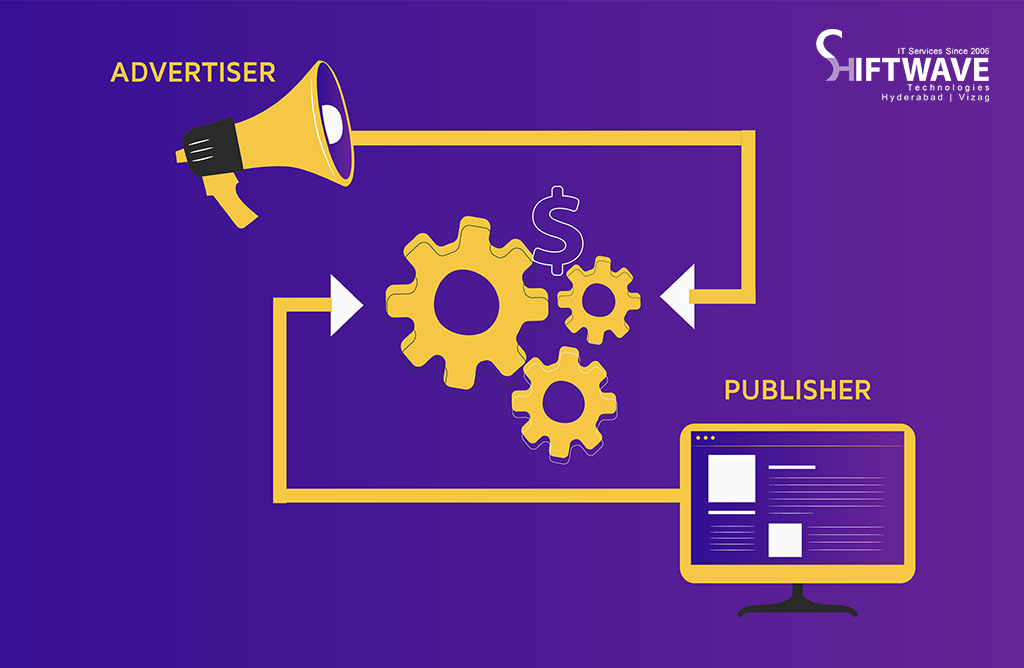Performance Marketing: Get Results, Not Just Impressions
Home » Blog » Performance Marketing: Get Results, Not Just Impressions

In the ever-evolving landscape of digital marketing, businesses are increasingly realizing that it’s not enough to focus on mere impressions. Instead, they’re shifting their attention towards a more results-driven approach known as performance marketing. This strategy allows companies to track and measure their marketing efforts, ensuring that every dollar spent delivers tangible returns. In this blog, we’ll explore the world of performance marketing, dispel some common myths, discuss essential KPIs and metrics, identify pitfalls to avoid, delve into the roles of publishers and advertisers, and provide guidance on how to kickstart your performance marketing journey.
What is Performance Marketing?
Performance marketing is a comprehensive approach to online advertising where advertisers pay marketing companies based on pre-defined key performance indicators (KPIs). The essence of performance marketing is to deliver measurable results. Rather than concentrating on the reach or impression, the primary focus here is on actions taken by the target audience, such as clicks, lead generation, sales, or any other desired action.
Performance marketing encompasses a wide array of digital marketing tactics, including:
- Search Engine Marketing (SEM): Using paid search advertising to increase visibility in search engine results.
- Social Media Advertising: Promoting products or services on social media platforms and tracking the results.
- Affiliate Marketing: Partnering with affiliates who earn commissions for driving desired actions.
- Email Marketing: Measuring open rates, click-through rates, and conversion rates.
- Content Marketing: Tracking engagement, time spent, and lead generation through content.
- Display Advertising: Measuring clicks, conversions, and impressions on display ads.

Performance Marketing Myths vs. Reality
Myth 1: Performance Marketing is Only for E-commerce
One common misconception about performance marketing is that it’s only applicable to e-commerce businesses. In reality, performance marketing can be tailored to suit the goals of various types of businesses, including B2B companies, lead generation, and even branding campaigns. The key is to define clear objectives and KPIs that align with your business goals.
Myth 2: It’s Just About Pay-Per-Click (PPC)
While PPC advertising is a significant component of performance marketing, it’s not the only one. Performance marketing encompasses various digital channels, allowing businesses to diversify their efforts. It’s about choosing the right channels and strategies that will yield the best results for your specific goals.
Myth 3: Performance Marketing is Expensive
Performance marketing allows you to set budgets and optimize your spending. You can start with a small budget and scale up as you see positive results. This cost-effective approach ensures that you only pay for actual results, making it a valuable investment for businesses of all sizes.
KPIs and Metrics
Key performance indicators (KPIs) and metrics are the lifeblood of performance marketing. These are the data points that allow you to measure the success of your campaigns. Some essential KPIs and metrics in performance marketing include:

- Click-Through Rate (CTR): The ratio of clicks to impressions, indicating how compelling your ad is to your audience.
- Conversion Rate: The percentage of users who take a desired action after clicking on your ad.
- Return on Investment (ROI): A critical metric that shows how much you’ve earned from your investment.
- Cost Per Acquisition (CPA): The cost of acquiring a customer or lead through your campaign.
- Customer Lifetime Value (CLV): The projected revenue a customer will generate over their entire engagement with your business.
- Bounce Rate: The percentage of visitors who navigate away from your site after viewing only one page, indicating a lack of engagement.
- Ad Quality Score: A rating assigned by ad platforms that reflects the quality and relevance of your ad.
- Impression Share: The percentage of impressions your ads received compared to the total available impressions.
Common Pitfalls and Mistakes to Avoid in Performance Marketing
Performance marketing can be highly effective when done right, but there are common pitfalls and mistakes to avoid:
1. Neglecting Analytics
Without accurate and detailed analytics, you won’t be able to measure your campaign’s performance effectively. Always set up tracking and regularly analyze your data to make informed decisions.
2. Overlooking Mobile Optimization
With a growing number of users accessing content on mobile devices, it’s crucial to ensure your landing pages and ads are mobile-friendly for better user experience and results.

3. Ignoring Ad Quality
Your ad’s quality score directly affects your campaign’s success. Create compelling and relevant ads to boost your quality score, which can reduce your overall costs.
4. Failing to A/B Test
A/B testing allows you to compare different elements of your campaigns to find out what works best. Not utilizing this technique can hinder your campaign’s potential.
5. Not Setting Clear Goals
Define your objectives and KPIs clearly from the outset. Without clear goals, it’s challenging to measure success and optimize your campaigns.
Concepts of Publishers and Advertisers
In the world of performance marketing, there are two key players: publishers and advertisers.
Publishers are the websites, apps, or platforms that offer ad space to advertisers. They monetize their platforms by allowing advertisers to display their ads to their audience. Publishers can range from major websites and social media platforms to niche blogs and mobile apps.
Advertisers are businesses or individuals looking to promote their products or services. They create ad campaigns and pay publishers to display their ads. Advertisers must choose the right publishers and platforms to reach their target audience effectively.

How to Get Started with Performance Marketing
- Set Clear Goals: Determine your objectives, whether it’s increasing sales, lead generation, brand awareness, or other specific actions. Clear goals will guide your entire performance marketing strategy.
- Identify your Target Audience: Understand your audience’s demographics, interests, and online behavior. This knowledge will help you choose the right platforms and publishers.
- Select the Right Channels: Choose the digital marketing channels that align with your goals and target audience. This may include Google Ads, Facebook Ads, Instagram Ads, and more.
- Budget and Planning: Allocate your budget wisely, considering the potential ROI for each channel. Create a comprehensive marketing plan that outlines your campaign strategy.
- Create Engaging Content: Develop high-quality ad creatives and landing pages that are designed to convert. A/B test your ad copies, images, and landing pages to optimize performance.
- Implement Tracking and Analytics: Use tracking tools like Google Analytics or conversion pixels to monitor the performance of your campaigns in real-time.
- Optimize Continuously: Regularly analyze your data to make informed decisions. Adjust your campaigns, ad copies, and targeting to improve results.
- Scale Your Efforts: Once you see positive results, consider increasing your budget and expanding your campaigns to reach a broader audience.
- Stay Updated: The digital marketing landscape is ever-changing. Stay informed about new trends, technologies, and strategies to keep your campaigns competitive.
Conclusion
Performance marketing is a results-oriented approach that’s gaining momentum in the world of digital marketing. Instead of focusing on mere impressions, businesses are turning their attention to measurable actions and outcomes. To succeed in performance marketing, set clear goals, understand your target audience, choose the right channels, and constantly optimize your campaigns based on data and analytics. By following these principles, businesses can achieve better ROI and growth in today’s competitive digital landscape.
In Hyderabad and Vizag, where the digital marketing scene is thriving, businesses have the opportunity to partner with professionals who understand the nuances of performance marketing. For exceptional digital marketing services in Hyderabad and Vizag, consider reaching out to Shiftwave, a leading digital marketing agency that can help you navigate the world of performance marketing effectively. Visit their website at www.shiftwave.com to learn more about their services and how they can assist you in achieving your digital marketing goals. Don’t just aim for impressions; strive for measurable results with performance marketing.




